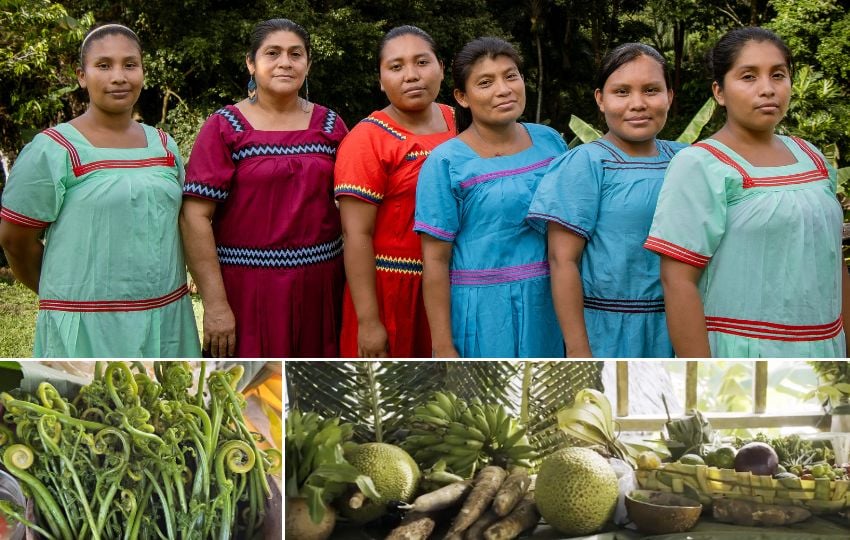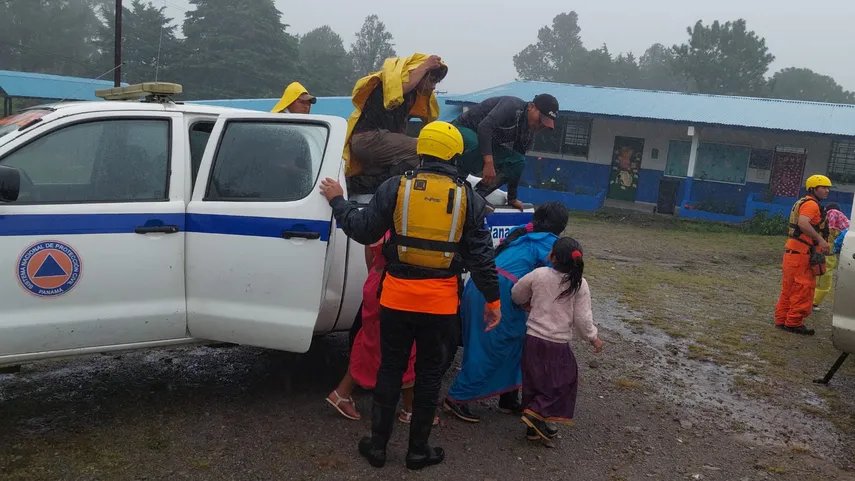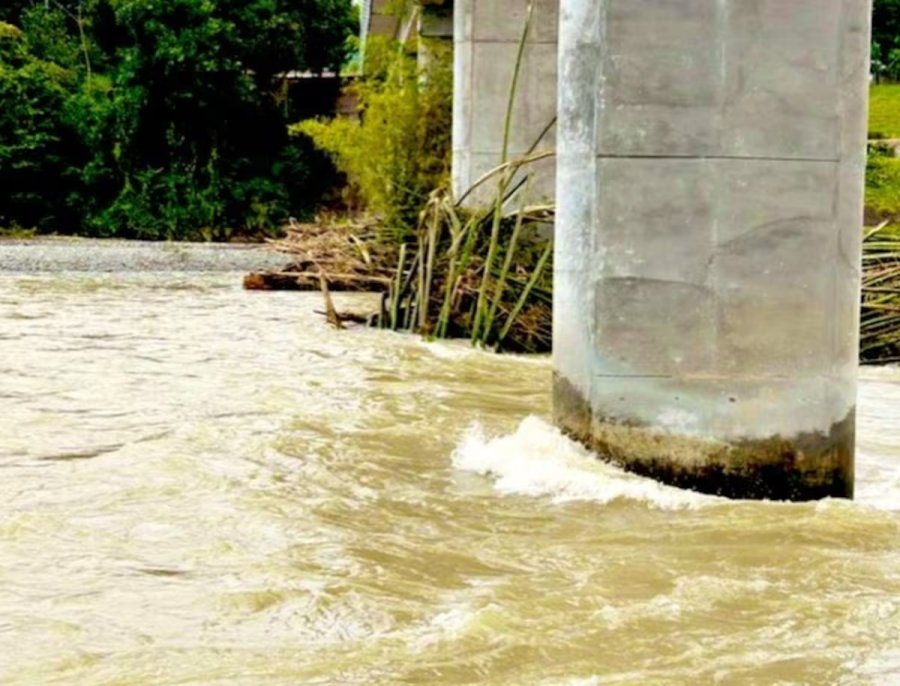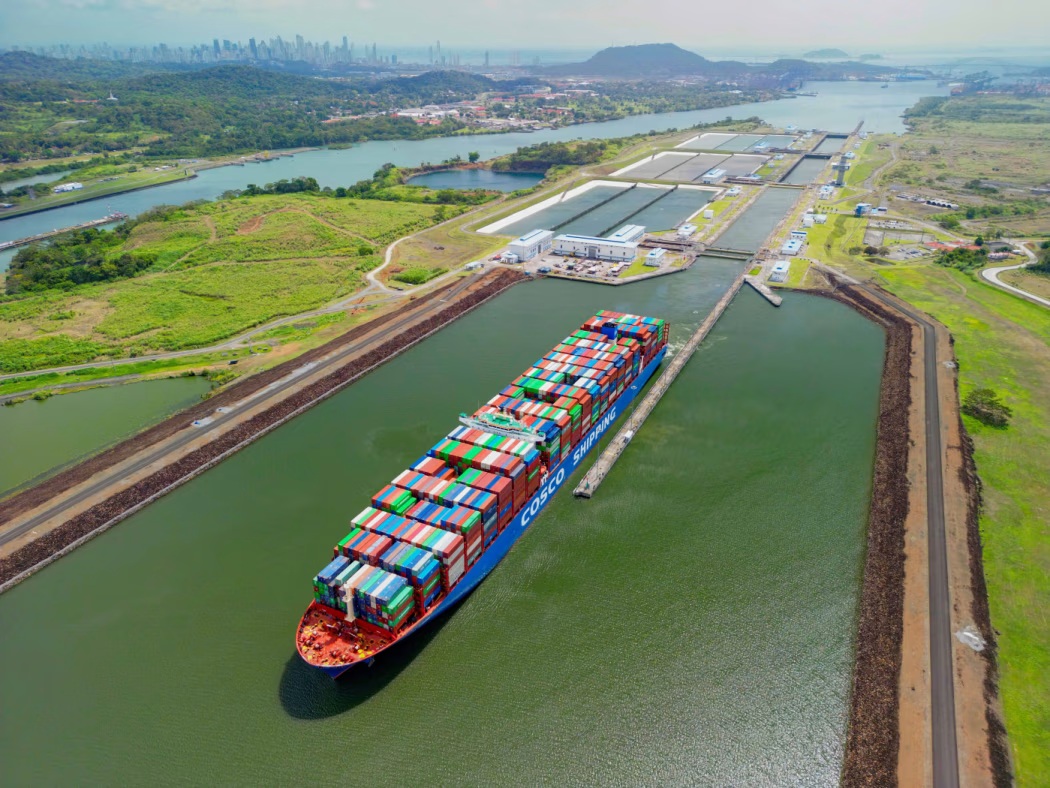Ngäbe Women Lead Project to Promote and Preserve Their Ancestral Cuisine

To promote and preserve the food of the Ngäbe ethnic group is the purpose of the Ari Ugüenrien Project, which in Spanish means “let’s cook together”, which is developed with 15 indigenous women from the Río Caña community, in the Kusapín district in the Ngäbe region. Created in 2021 by Felipe Baker, a Ngäbe and biologist by profession, this project inspired by family and ancestors, seeks to share a gastronomic offering based on grandmothers’ recipes. Among the dishes that stand out in this project is the local lobster that is placed on a mass of primitive banana, the calalú, which is like a wild asparagus, the local palm heart and the dashin, which is a tuber that comes from Oceania. For Baker, if she wants to introduce Panama and its roots, the authentic thing would be to share those recipes created by women who work directly with the tourism sector, since they cook for visitors on the island of Escudo de Veraguas, which is located 30 minutes from her community.
She said that there are wild fruits and desserts that are made in the community, however, people are reluctant to share them with visitors, because they think they have no value. “On the contrary, they can now see that this has a lot of value in gastronomy and that it is the offer that we want to give to the world and to tourists,” she added. This group of 15 women, who intend to expand, sees themselves in the medium term with a restaurant, where they can present to tourists these recipes that they already cooked, only now they do it in a more orderly, prettier way and with greater confidence. Baker said the Ari Ugüenrien Project aims to showcase authentic community food using local produce, including lobster and catch of the day, which are caught organically. The community leader said that this project took a momentous turn when she joined forces with the prominent chef Mario Castrellón from the Maito restaurant, who had already worked with Ngäbe women in Veraguas, San Félix and Kankintú. She recalled that when she told him about this project, Castrellón was amazed and he is giving women the confidence that they can do things in a better way. “I think Mario came along to give a boost to what we already knew, which had the flavor and ingredients. What they didn’t have was the confidence to share their food with the world and with Panama,” she stressed.
Chef Mario Castrellón said that one of the pillars of his life is trying to contribute to society and that he has had the opportunity to contribute to various projects, gaining some experience. “When Felipe Baker presented the project to me, it seemed like something special and with great potential, which is why we decided to support it as much as possible,” he said. In his opinion, the most outstanding dishes of this project, without a doubt, is Ari Ugüenrien’s rondón, since it is very special, like all the dishes prepared with dashin. Currently, they are doing everything possible to raise funds to build a small restaurant for tourists and people passing through the community, and at the same time, a small coconut production plant to send to Panama to contribute to the sustainability of the project. “In five years’ time, it should be a strong and sustainable project,” he concluded.





